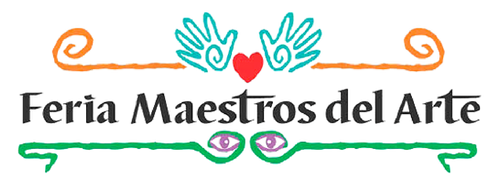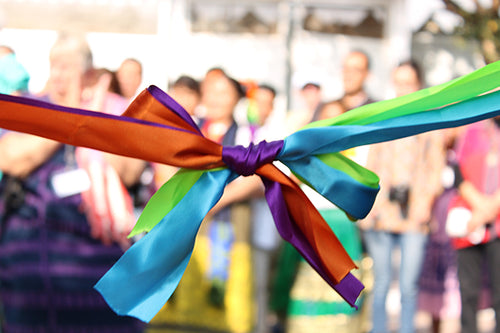
Juan Horta Castillo (1940 - 2006), Tocuaro, Michoacán
On December 19, 2006, Mexico lost one of the finest artisans in Mexico. Juan was the first artist I ever invited to attend Feria Maestros del Arte in 2001 and has attended every show since. His wife, Enedina, and two of their sons stayed in my home and we became fast friends over the last five years. Juan was something very special and I will miss his sparkling eyes and the huge bear hugs he would give me whenever I visited them in Tocuaro, Michoacán.
One of the best traditional mask makers in Mexico was Juan Horta Castillo. He was one of the principal and most sought-after carvers from a famed mask-making village in Michoacán.
Juan exhibited his handicraft throughout Mexico and the United States. His masks were selected by the Ballet Folklorico de Mexico, and are featured in their worldwide performances. He was also a multiple first prize winner of Mexico’s National Mask Maker competition. El Museo de la Máscara (The Mask Museum) in San Luis Potosi, Mexico, exhibits his masks as part of their permanent collection. Don Juan has also been a featured artist at the Art Institute of Chicago, the Field Museum of Natural History, Brown University and numerous colleges, schools and cultural centers throughout the United States.
Juan worked primarily in wood, usually painting and lacquering the finished mask. He carved fantastic devil and duality masks, which are constantly varied. He resided in Michoacán with his wife, Enedina, and five children.
Mask making has been a tradition for centuries in Mexico. During pre-Hispanic times the Aztecs used masks as part of their religious ceremonies. After the Spanish Conquest, Christian traditions were incorporated into the folk art of mask making.
In the past, masks were worn in ritual dances and used by the dancers to represent persons or animals; the dance’s purpose was to tell a story in which the desired result was achieved through the magic of imitation. Masks are usually made of wood, with leather, bone, and often with genuine hair and teeth. They may also be fashioned from other materials such as animal shells and tin. The masks can be painted, lacquered, or left in a natural state.
The art of mask making demonstrates imagination, fantasy, and great folk art decorative and creative talent. Mask making and dances for which they are used, are an integral part of indigenous Mexico and are handed down from generation to generation, and are a source of pride to individuals as well as to their communities.
Juan has passed on his unique talents to his two sons, Manuel and Modesto. Their able hands will continue the Juan Horta legacy.
Morelos #17
Tocuaro, Mich
434 127 6478; Mothers 434 116 0501
juanjosehortaramos@gmail.com
@mascarashorta instagram

